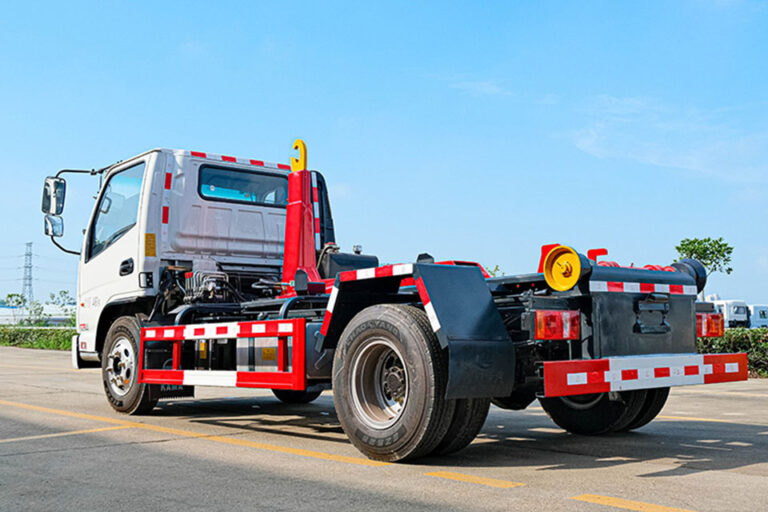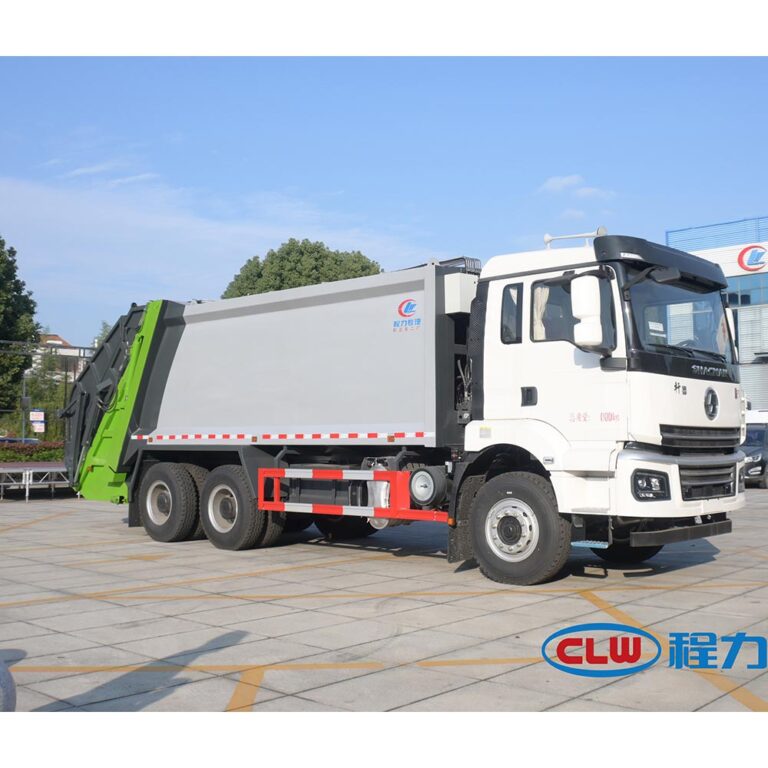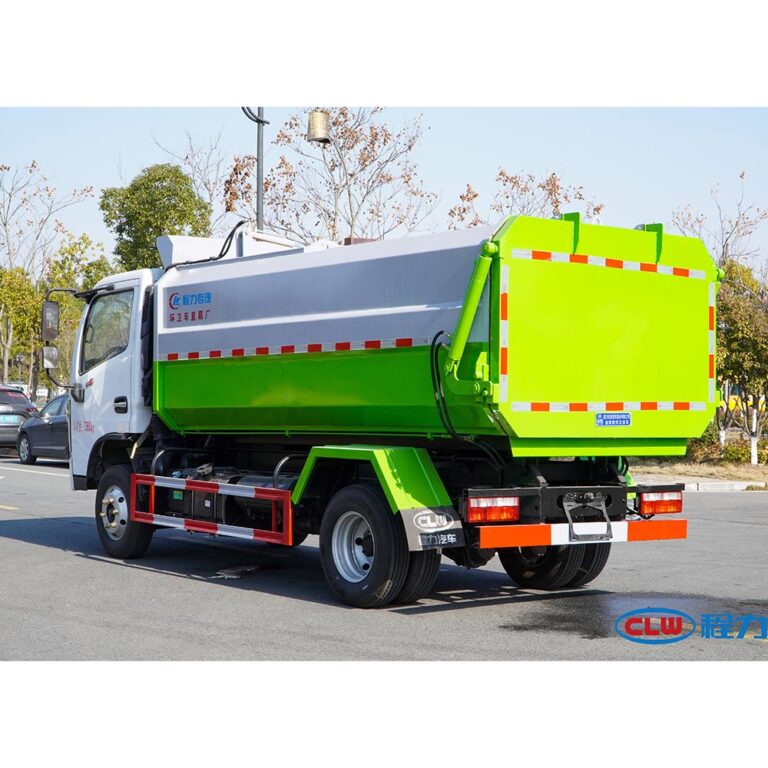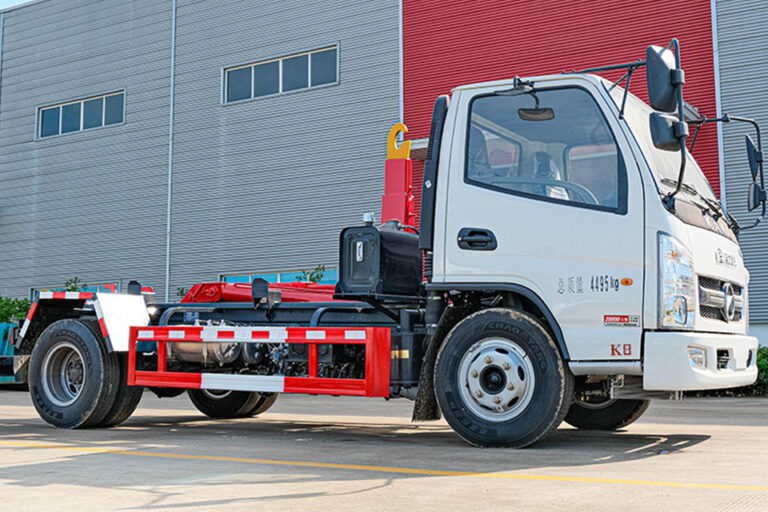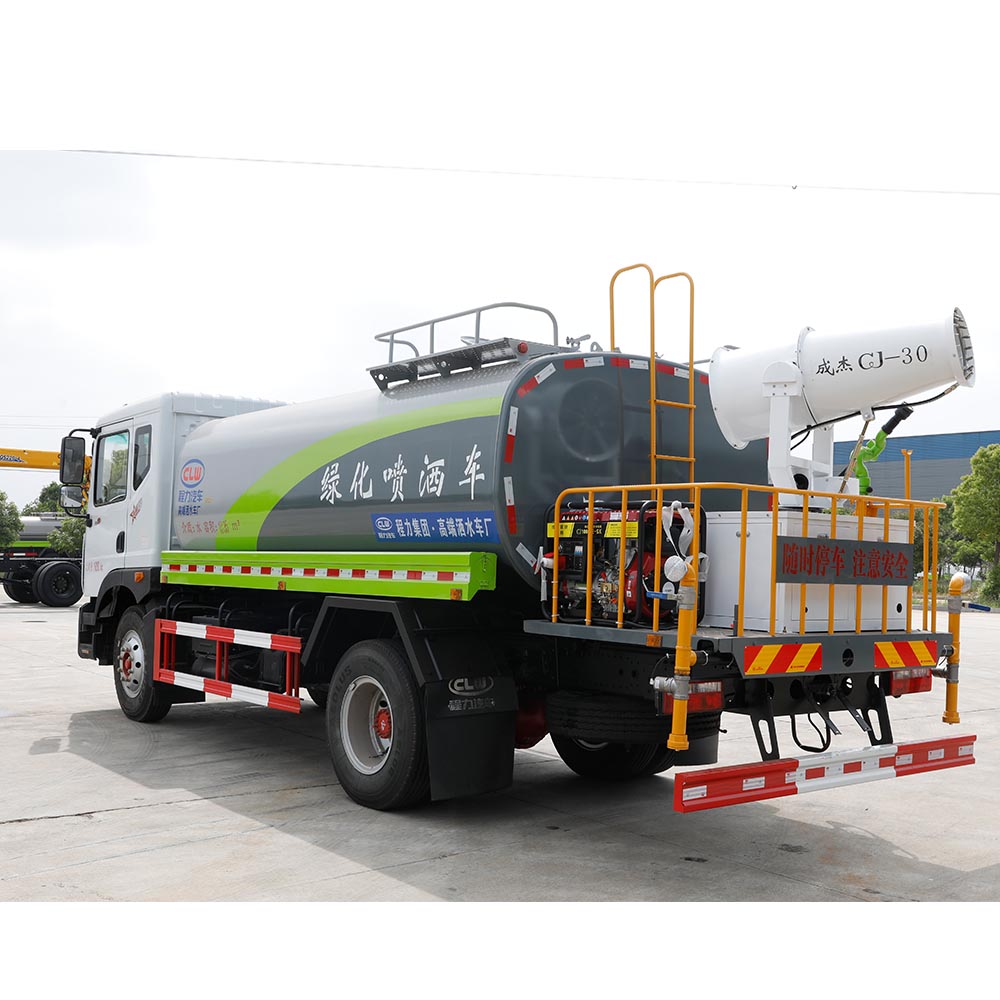
Сколько воды вмещает автоцистерна
Водный грузовик Load King: Все, что вам нужно знать
В этой статье представлен всеобъемлющий обзор водовозов Load King, рассматриваются различные области их применения, вместимость и конфигурации. Если вы работаете в строительстве, сельском хозяйстве, горнодобывающей промышленности или любой другой отрасли, где требуется надежная доставка воды, это руководство поможет вам понять, почему водовозы Load King являются лучшим выбором и почему чтение этой статьи стоит вашего времени. Как ведущий завод по производству автоцистерн для воды, мы делимся своим опытом, чтобы помочь вам принять обоснованные решения для вашего бизнеса.
Оглавление
Каковы основные области применения водовозов в различных отраслях промышленности?
Водовозы играют важную роль в различных отраслях промышленности, включая строительство, горнодобывающую промышленность, сельское хозяйство и коммунальное хозяйство. Например, в строительстве и горнодобывающей промышленности водовозы используются для борьбы с пылью на строительных площадках и помогают уплотнять почву. Это обеспечивает более безопасную рабочую среду и помогает соответствовать нормативным требованиям. Например, горнодобывающая компания, работающая в засушливых регионах, может использовать водовозы для подавления пыли, образующейся при работе тяжелой техники, что позволяет предотвратить респираторные заболевания у рабочих и минимизировать воздействие на окружающую среду. Они также необходимы для поддержания дорог и обеспечения устойчивости фундаментов. Сельскохозяйственные предприятия и фермы используют водовозы для ирригации, особенно в районах, переживающих засуху. Муниципалитеты используют водовозы для уборки улиц, пожаротушения и аварийного водоснабжения. Универсальность этих машин делает их незаменимыми в различных условиях эксплуатации.
Водовозы часто используются в городских условиях для уборки улиц и борьбы с пылью. Они также играют важную роль в борьбе с пожарами, особенно в сельских районах с ограниченным доступом к пожарным гидрантам. Компании, занимающиеся ландшафтным дизайном, используют водовозы для ухода за парками и садами, а организаторы мероприятий полагаются на них для обеспечения питьевой водой больших собраний. В промышленных парках и на нефтегазовых предприятиях водовозы помогают справиться с пылью и обеспечивают водой различные процессы. Широкий спектр применения подчеркивает важность водовозов для поддержания операционной эффективности и безопасности в различных секторах.
Сколько воды может вместить водовоз?
Вместимость водовоза сильно варьируется в зависимости от его размера и конфигурации. Как правило, водовозы вмещают от 2 000 до 6 000 галлонов воды. Некоторые более крупные модели, предназначенные для тяжелых условий эксплуатации, могут вмещать до 10 000 галлонов. Полная масса грузовика (GVWR) и плотность перевозимой жидкости также влияют на то, сколько воды может перевозить грузовик. При выборе водовоза необходимо учитывать конкретные потребности вашего предприятия, чтобы выбрать модель с достаточной вместимостью.
Количество воды, которое может перевозить грузовик, зависит не только от объема цистерны, но и от установленных законом ограничений по весу. Например, вода весит примерно 8,34 фунта на галлон, поэтому бак емкостью 5 000 галлонов увеличит вес автомобиля примерно на 41 700 фунтов. Для предприятий очень важно выбрать водовоз, который сможет справиться с доставкой воды, не превышая установленных законом ограничений по весу. Понимание этих факторов поможет выбрать водовоз, который сбалансирует вместимость с операционной эффективностью и соответствием нормативным требованиям.
Какова типичная вместимость крупного танкера?
Вместимость больших автоцистерн обычно составляет от 5 000 до 11 600 галлонов. Эти грузовики предназначены для перевозки значительных объемов жидкости, что делает их подходящими для масштабных строительных проектов, крупномасштабного сельскохозяйственного орошения и значительных муниципальных нужд по доставке воды. Например, при строительстве крупных объектов, таких как автострады или плотины, большая цистерна может эффективно обеспечить подачу воды для борьбы с пылью и уплотнения почвы, снижая необходимость в частых дозаправках.
Максимальная вместимость прицепа-цистерны зависит от таких факторов, как материал цистерны, ее конструкция и полная масса транспортного средства. Решающую роль играют и нормативные требования, поскольку превышение установленных весовых ограничений может привести к штрафам и задержкам в работе. Поэтому при выборе крупнотоннажной цистерны важно учитывать как эксплуатационные потребности, так и нормативные ограничения, чтобы обеспечить оптимальную производительность и соответствие требованиям. Наш завод специализируется на производстве крупнотоннажных танкеров, отвечающих этим строгим требованиям.
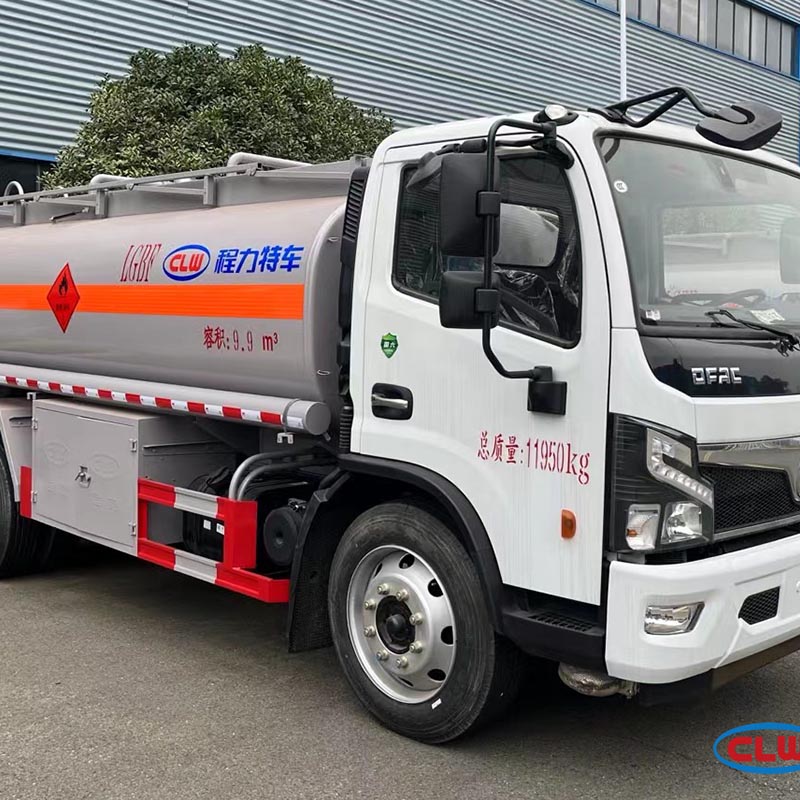
Как материалы цистерны влияют на выбор автоцистерны для воды?
Материалы, используемые при изготовлении цистерны для воды, существенно влияют на ее прочность, долговечность и пригодность для различных применений. К распространенным материалам цистерн относятся нержавеющая сталь, алюминий и углеродистая сталь. Цистерны из нержавеющей стали известны своей коррозионной стойкостью и долговечностью, что делает их идеальными для транспортировки питьевой воды и использования в суровых условиях. Алюминиевые баки легче, что позволяет снизить общий вес транспортного средства и повысить эффективность использования топлива. Цистерны из углеродистой стали, хотя и более тяжелые, но прочные и экономически эффективные.
Выбор материала резервуара зависит от конкретных потребностей вашего предприятия. Например, если вам нужно транспортировать питьевую воду, то бак из нержавеющей стали будет лучшим выбором благодаря своим гигиеническим свойствам. С другой стороны, если вам важен вес, лучше использовать алюминиевую цистерну. Наш завод предлагает цистерны для воды из различных материалов, поэтому вы сможете найти идеальный вариант, соответствующий вашим требованиям. Примите во внимание тип жидкости, которую вы будете перевозить, и условия окружающей среды, в которых будет работать грузовик, чтобы принять обоснованное решение.
Какие факторы следует учитывать при выборе подходящего водовоза?
При выборе подходящего водовоза необходимо учитывать несколько факторов, чтобы он отвечал вашим конкретным потребностям. Во-первых, определите требуемую вместимость, исходя из объема воды, необходимого для ваших работ. Например, для небольшого ландшафтного проекта может потребоваться грузовик емкостью 2 000 галлонов. Для более крупных проектов, таких как масштабные строительные площадки, может потребоваться грузовик вместимостью 5 000 галлонов и более.
| Фактор | Рассмотрение |
| Вместимость | Объем воды, необходимый для работы |
| Материал | Конструкция резервуара (нержавеющая сталь, алюминий, карбон) |
| ПОЛНАЯ МАССА | Полная масса транспортного средства и установленные законом ограничения |
| Характеристики | Распылительные форсунки, насосы, шланги |
Кроме того, обратите внимание на материалы бака, такие как нержавеющая сталь, алюминий или углеродистая сталь, поскольку они влияют на долговечность и пригодность для различных типов воды (питьевой и непитьевой). Также следует оценить характеристики автоцистерны, такие как форсунки, насосы и шланги, чтобы убедиться, что они соответствуют вашим эксплуатационным требованиям. Наш опыт в производстве автоцистерн для воды позволяет нам проследить за этими аспектами и помочь вам выбрать идеальный автоцистерну для воды, отвечающую вашим потребностям. Тем, кто ищет надежное решение, мы рекомендуем обратить внимание на наши Марка Chengli - Транспортное средство для перевозки взрывного оборудованияизвестны своей долговечностью и производительностью.
Какие типы автоцистерн используются для перевозки воды?
Автоцистерны бывают разных размеров и конфигураций, каждая из которых предназначена для удовлетворения конкретных потребностей в транспортировке воды. Небольшие автоцистерны, часто используемые в городских районах, обычно имеют емкость от 2 000 до 4 000 галлонов. Они идеально подходят для таких задач, как уборка улиц, борьба с пылью на небольших строительных площадках, а также доставка воды в жилые районы во время чрезвычайных ситуаций или засухи. Наш сайт Мусоровоз со сжатым воздухом Chengliwei это отличный пример специализированного автомобиля, разработанного для городских условий.
Средние автоцистерны емкостью от 4 000 до 6 000 галлонов универсальны и могут использоваться в различных сферах, включая орошение сельскохозяйственных угодий, крупные строительные проекты и муниципальное водоснабжение. Большие автоцистерны, способные перевозить более 6 000 галлонов, обычно используются для тяжелых условий эксплуатации, таких как снабжение водой удаленных горнодобывающих объектов или крупномасштабных ирригационных систем. Каждый тип автоцистерн обладает уникальными преимуществами, и понимание этих различий помогает выбрать подходящий грузовик для ваших конкретных нужд. Для специализированных применений мы предлагаем Грузовик для перевозки взрывчатого оборудования обеспечивает высокий уровень безопасности и надежности.
Как влияет полная масса автомобиля на грузоподъемность водовоза?
Полная масса автомобиля (GVWR) - важнейший фактор при определении грузоподъемности водовоза. GVWR - это максимально допустимый вес полностью загруженного грузовика, включая шасси, кузов, топливо, пассажиров и груз (в данном случае воду). Превышение полной массы может привести к угрозе безопасности, повышенному износу автомобиля и потенциальным юридическим штрафам. Поэтому очень важно выбрать водовоз с полной массой, которая может безопасно и легально вместить требуемый объем воды.
Водовозы имеют различные конфигурации для удовлетворения различных требований к весу и вместимости. Например, грузовик с большей полной массой может вместить большую цистерну и перевезти больше воды. Однако для обеспечения соответствия правилам безопасности дорожного движения очень важно соблюдать баланс между вместимостью цистерны и общим весом грузовика. Наш завод выпускает водовозы с различными вариантами полной массы, что позволяет вам выбрать грузовик, отвечающий вашим потребностям в грузоподъемности и не превышающий установленные законом ограничения по весу. Рассмотрите наши Чистящий и ассенизаторский автомобиль Chengliwei для надежного решения, отвечающего нормативным стандартам.
Каковы основные характеристики водовоза Load King?
Водовозы Load King известны своей прочной конструкцией, надежной работой и передовыми функциями. Эти автоцистерны предназначены для работы в сложных условиях в различных отраслях промышленности и оснащены такими функциями, как насосы высокой производительности, многочисленные форсунки и прочные материалы бака. Высокопроизводительные насосы обеспечивают эффективную загрузку и выгрузку воды, а многочисленные распылительные форсунки позволяют точно распределять воду, что делает их идеальными для борьбы с пылью и уплотнения почвы.
Кроме того, водовозы Load King оснащены удобными элементами управления и средствами безопасности, которые повышают эффективность работы и защищают как оператора, так и окружающую среду. Цистерны обычно изготавливаются из высококачественных материалов, таких как нержавеющая сталь или алюминий, что обеспечивает долговечность и устойчивость к коррозии. Эти характеристики делают водовозы Load King предпочтительным выбором для предприятий, ищущих надежные и эффективные решения по доставке воды.
Почему небольшие грузовики-цистерны предпочтительнее в определенных областях применения?
Небольшие автоцистерны часто предпочитают использовать в городских районах и для работ, требующих маневренности и доступности. Компактные размеры позволяют им передвигаться по узким улицам и заезжать в ограниченные пространства, что делает их идеальными для таких задач, как уборка улиц, полив растений в общественных парках и обеспечение водой жилых районов во время чрезвычайных ситуаций. Кроме того, небольшие автоцистерны обычно имеют более низкие эксплуатационные расходы по сравнению с большими грузовиками, что делает их экономически эффективным решением для муниципалитетов и малых предприятий.
В таких сферах, как борьба с пылью на небольших строительных площадках или доставка питьевой воды в населенные пункты, пострадавшие от засухи, маневренность и эффективность небольших автоцистерн неоценимы. Их способность быстро и эффективно доставлять воду туда, где она больше всего нужна, делает их незаменимым инструментом в различных условиях эксплуатации. Наш ассортимент небольших автоцистерн, включая универсальные Зеленый опрыскиватель марки ChengliweiОн разработан для удовлетворения этих специфических потребностей, обеспечивая надежную работу и простоту использования.
Как наш завод по производству автоцистерн для воды может удовлетворить ваши конкретные потребности?
Являясь ведущим заводом по производству автоцистерн для воды, мы стремимся предоставлять высококачественные, индивидуальные решения для удовлетворения разнообразных потребностей наших клиентов. Наш опыт в проектировании и производстве автоцистерн позволяет нам предлагать продукцию, соответствующую вашим конкретным требованиям, независимо от того, нужна ли вам маленькая, маневренная машина для городских условий или большая, сверхмощная цистерна для промышленного использования. Мы предлагаем широкий выбор размеров, материалов и конфигураций цистерн, позволяя вам выбрать идеальный водовоз для вашей работы.
Наши современные производственные мощности и опытная команда позволяют нам выпускать грузовики, отвечающие самым высоким стандартам качества и надежности. Мы также предлагаем комплексную послепродажную поддержку, включая техническое обслуживание и ремонт, чтобы ваш водовоз продолжал работать наилучшим образом. Сотрудничая с нами, вы можете быть уверены, что инвестируете в продукт, который повысит эффективность вашей работы и удовлетворит ваши потребности в доставке воды на долгие годы. Свяжитесь с нами сегодня, чтобы узнать больше о том, как мы можем помочь вам найти идеальное решение для водовоза.
Вопросы и ответы
Какова типичная вместимость водовоза?
Вместимость водовоза обычно составляет от 2 000 до 6 000 галлонов, хотя некоторые специализированные модели могут вмещать до 10 000 галлонов. Точная вместимость зависит от размера, конструкции и назначения грузовика.
Какие материалы используются для изготовления цистерн для воды?
Распространенными материалами для изготовления цистерн для воды являются нержавеющая сталь, алюминий и углеродистая сталь. Нержавеющая сталь долговечна и устойчива к коррозии, алюминий легок, а углеродистая сталь прочна и экономична.
Как показатель полной массы автомобиля (GVWR) влияет на грузоподъемность водовоза?
GVWR определяет максимально допустимый вес полностью загруженного грузовика. Превышение этого предела может привести к проблемам с безопасностью и юридическим штрафам. Поэтому GVWR необходимо учитывать при определении грузоподъемности грузовика.
Каковы основные области применения водных грузовиков?
Водовозы используются для различных целей, включая борьбу с пылью на строительных и горнодобывающих площадках, уплотнение почвы, орошение в сельском хозяйстве, уборку улиц, пожаротушение и аварийное водоснабжение в муниципалитетах.
Почему стоит выбрать водовоз Load King?
Водовозы Load King известны своей прочной конструкцией, высокопроизводительными насосами, множеством распылительных форсунок и прочными материалами бака. Эти характеристики обеспечивают эффективную и надежную подачу воды в различных областях применения.
Какие факторы следует учитывать при выборе водовоза?
Ключевые факторы, которые необходимо учитывать, включают требуемую емкость, материалы цистерны, полную массу, а также такие характеристики грузовика, как насосы и распылительные форсунки. Также важно учитывать специфические эксплуатационные потребности и нормативные требования.
Заключение
- Водовозы играют важнейшую роль в различных отраслях промышленности, обеспечивая такие необходимые услуги, как борьба с пылью, ирригация и аварийное водоснабжение.
- Вместимость водовоза может составлять от 2 000 до более 10 000 галлонов в зависимости от его размера и конфигурации.
- Большие цистерны обычно вмещают от 5 000 до 11 600 галлонов и подходят для масштабных строительных и сельскохозяйственных работ.
- Материалы цистерн, включая нержавеющую сталь, алюминий и углеродистую сталь, влияют на долговечность и пригодность цистерн для воды для различных применений.
- При выборе подходящего водовоза необходимо учитывать такие факторы, как вместимость, материал бака, полная масса и конкретные эксплуатационные потребности.
- Водовозы Load King известны своей прочной конструкцией, передовыми функциями и надежной работой.
- Небольшие автоцистерны предпочтительнее благодаря своей маневренности и экономичности в городских и специфических условиях.
- Наш завод по производству автоцистерн для воды предлагает индивидуальные решения для удовлетворения различных потребностей клиентов, гарантируя высокое качество и надежность продукции.
- Понимание значения полной массы грузовика необходимо для того, чтобы сбалансировать вместимость воды с общим весом грузовика и соблюсти правила безопасности.
- Свяжитесь с нами сегодня, чтобы изучить наш ассортимент водовозов и найти идеальное решение для ваших производственных нужд.
Понимая эти ключевые моменты, вы сможете принять взвешенное решение при выборе водовоза, обеспечив его соответствие вашим конкретным требованиям и повысив эффективность работы.

